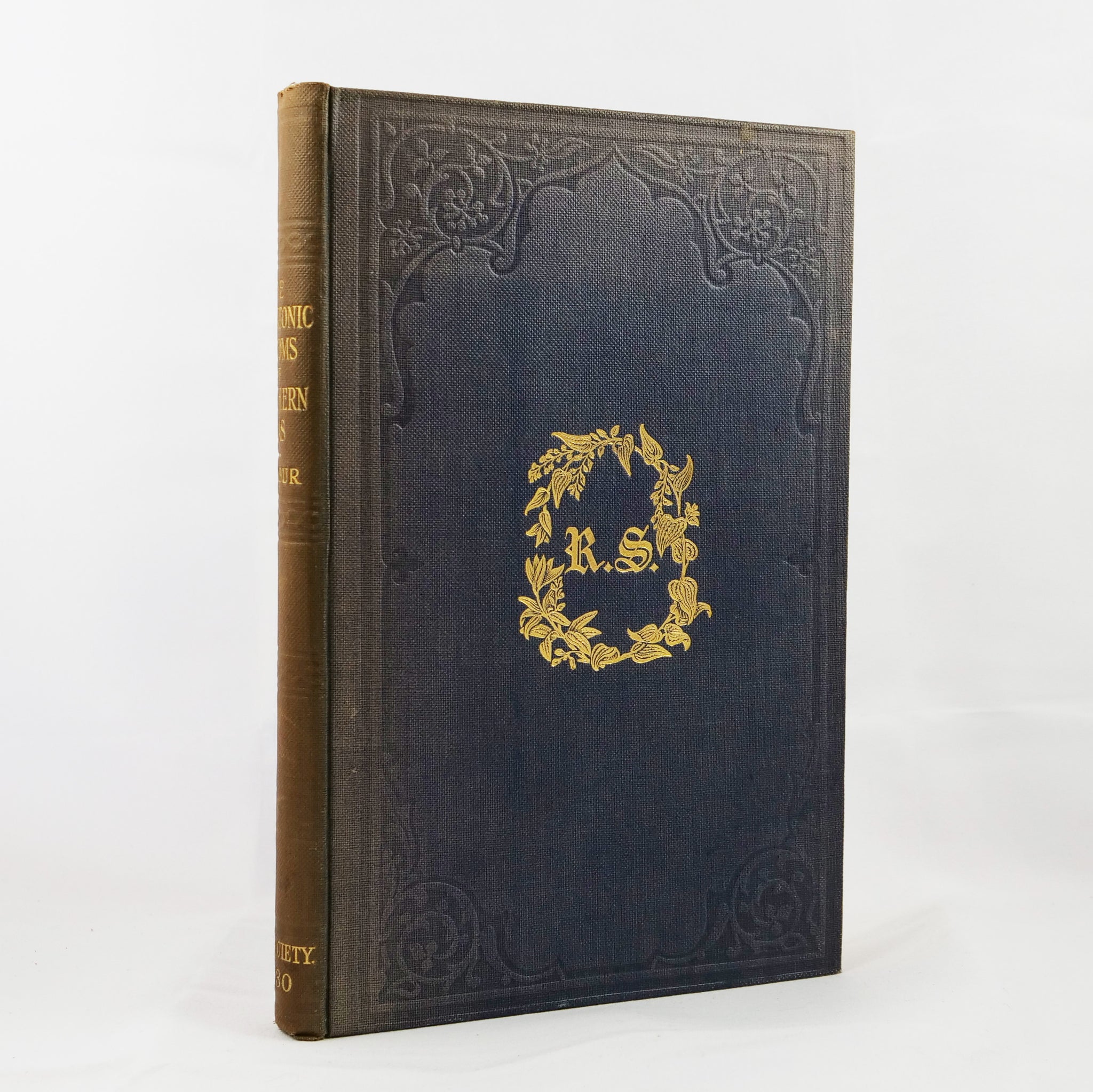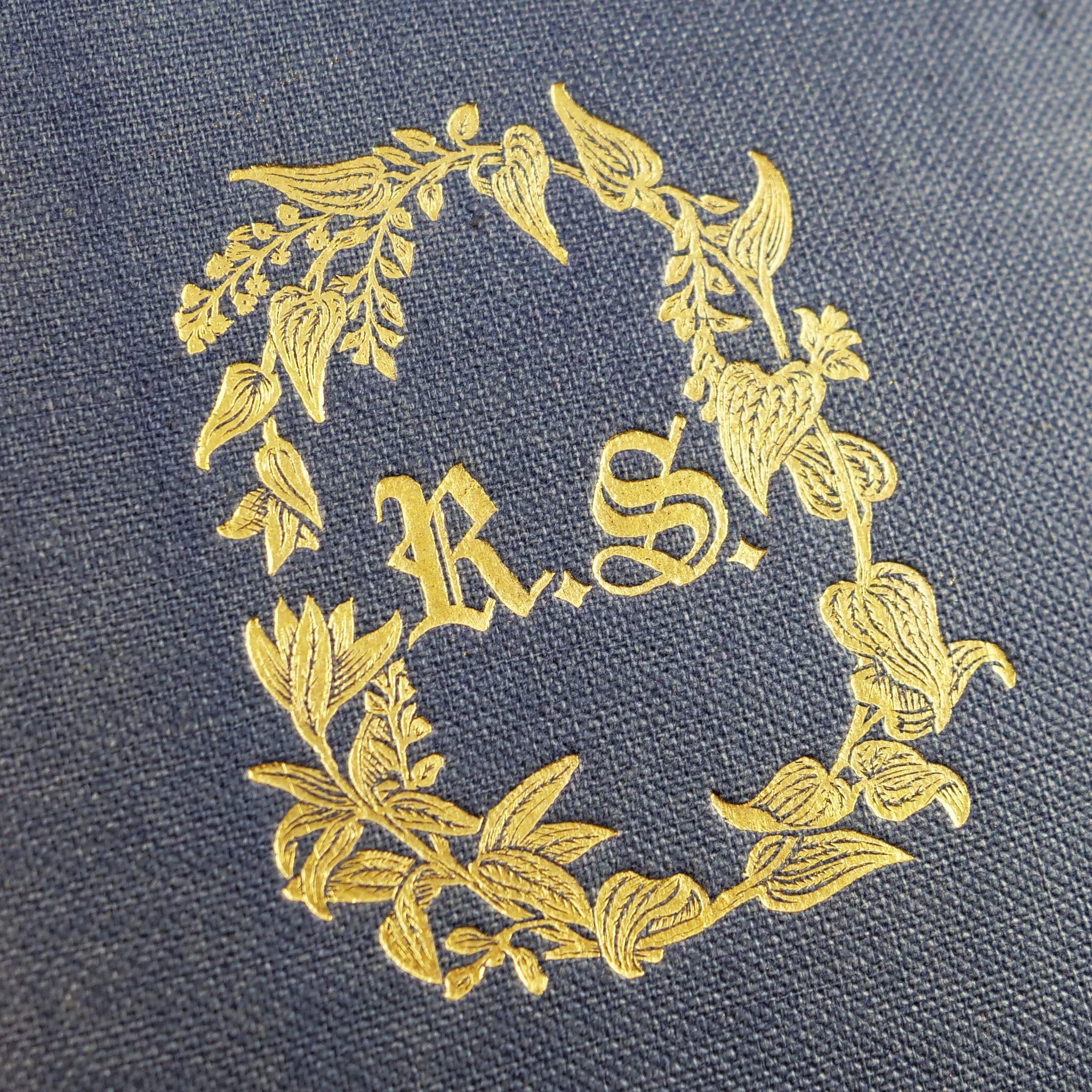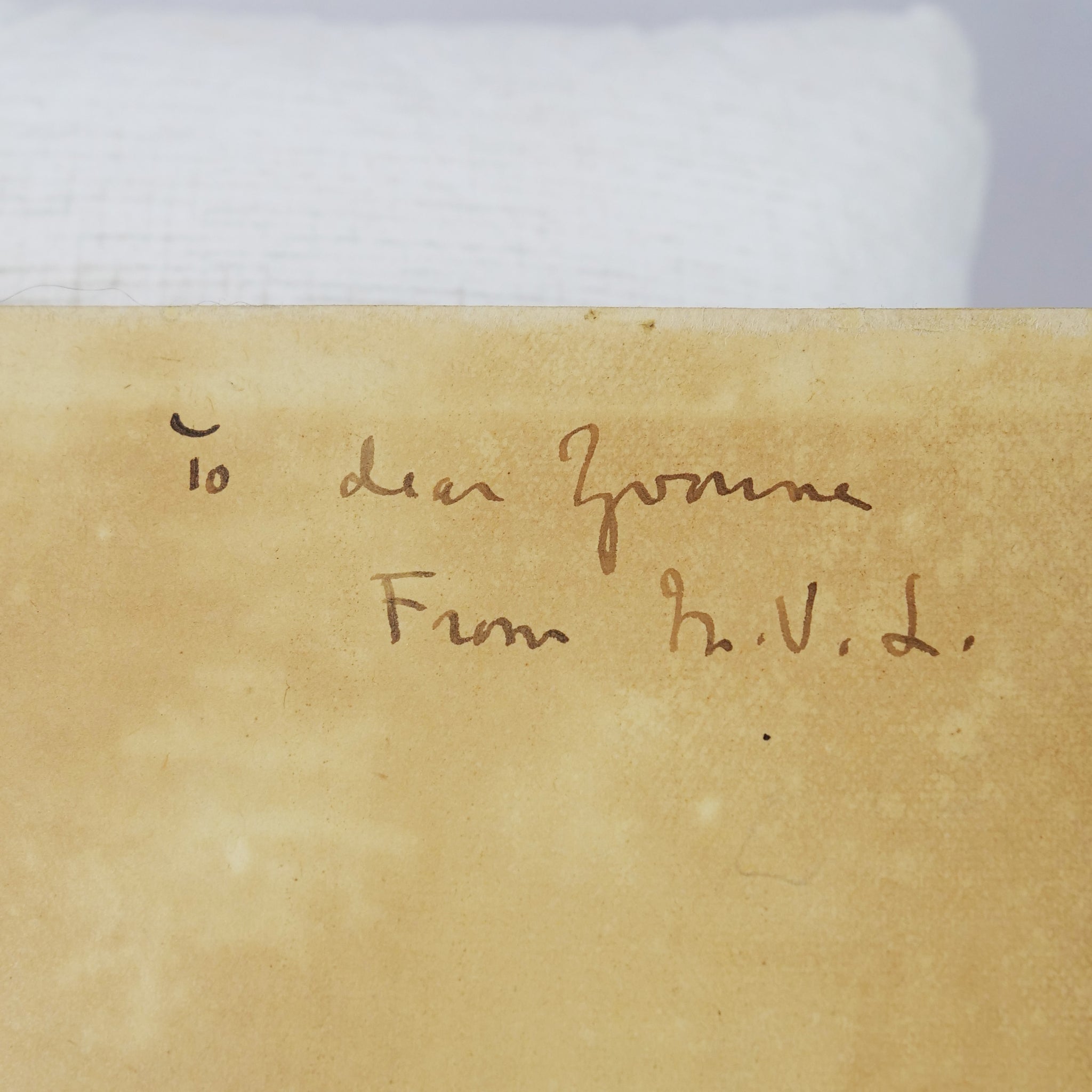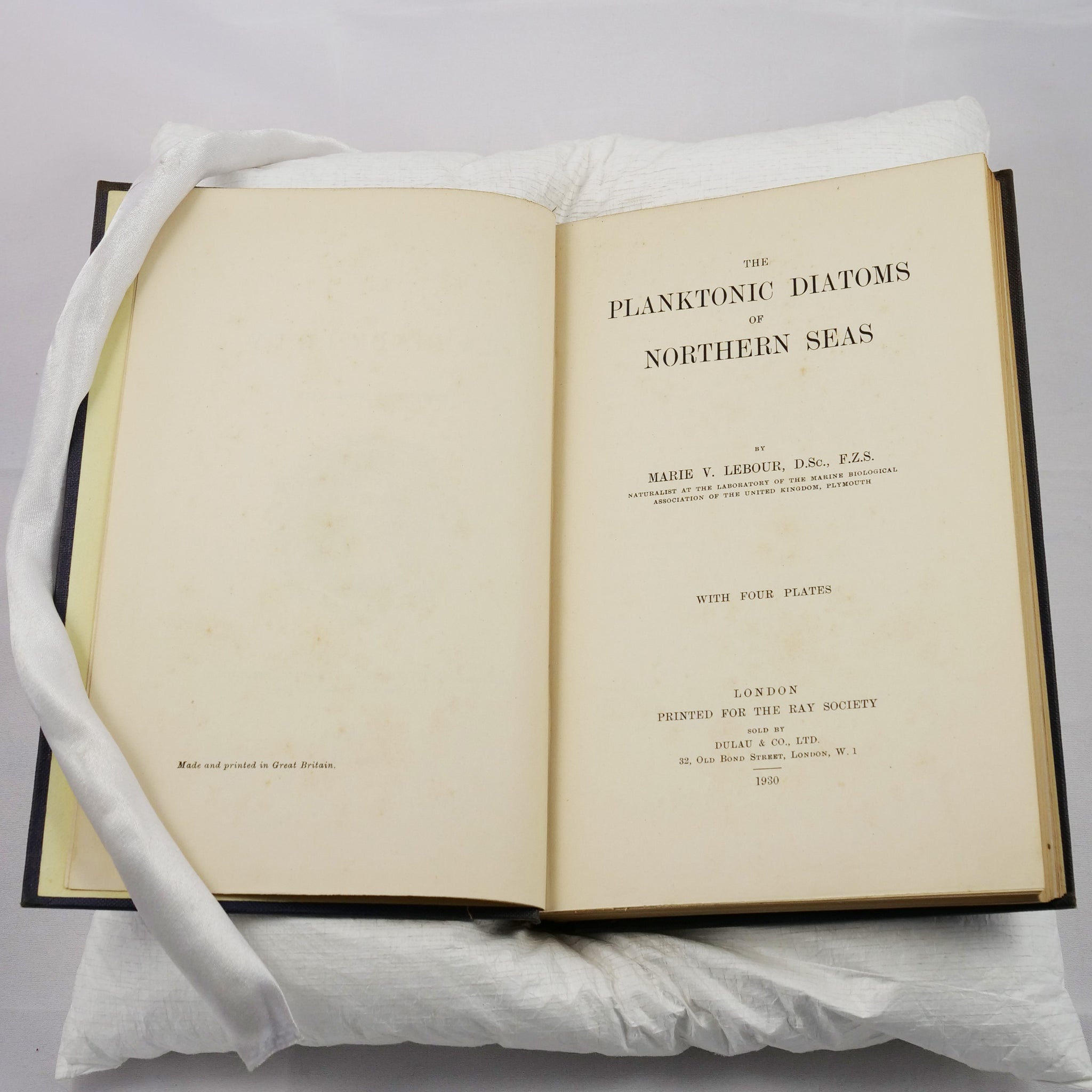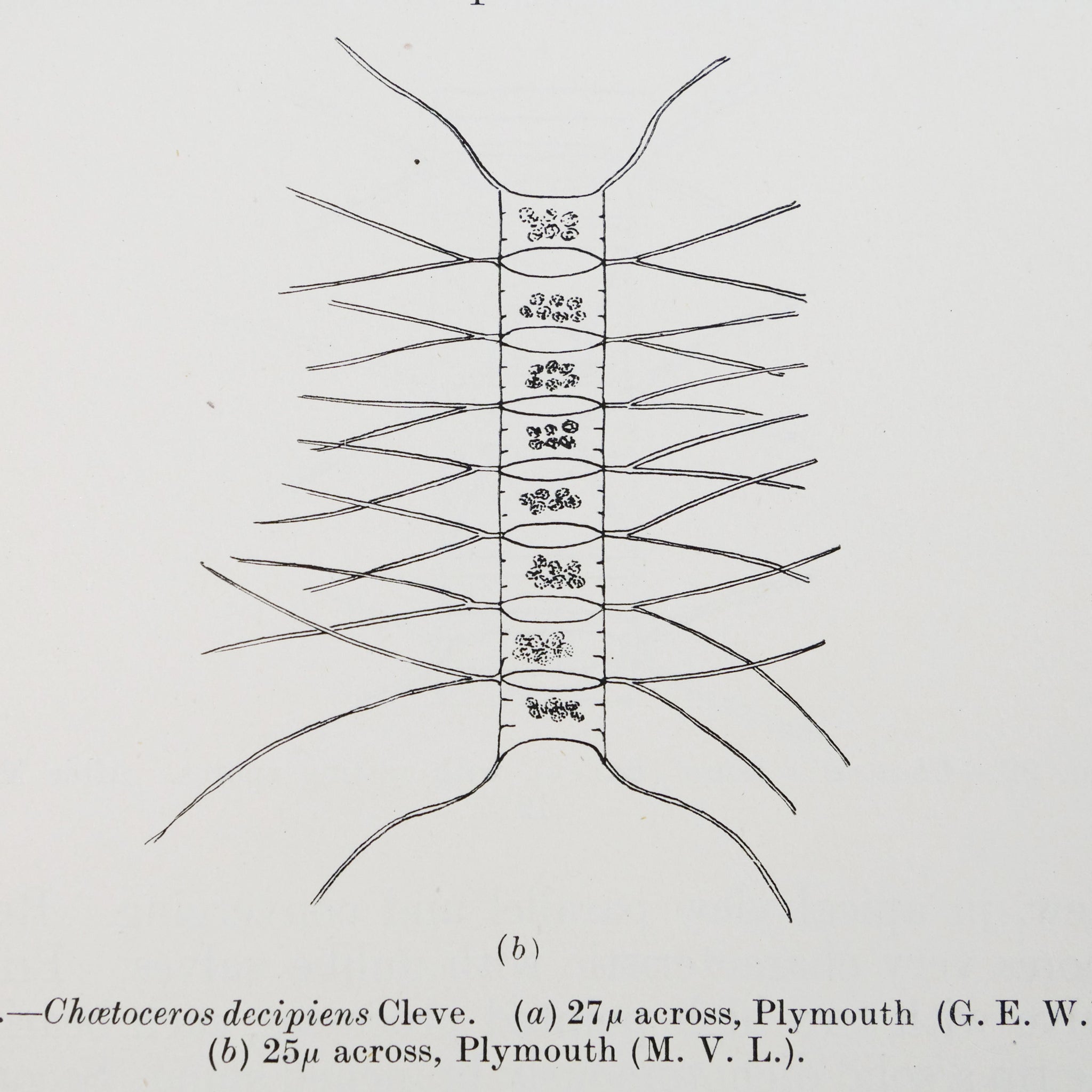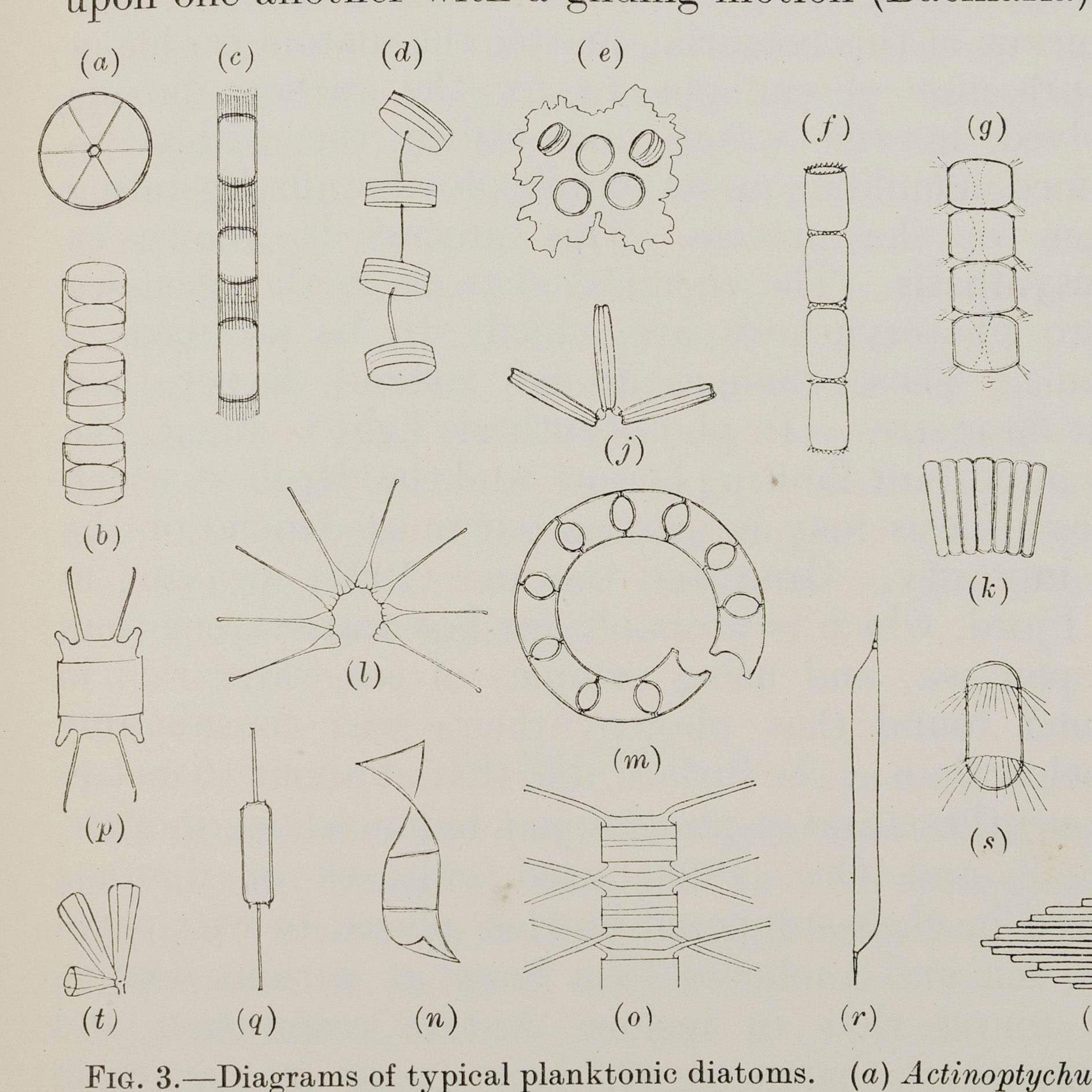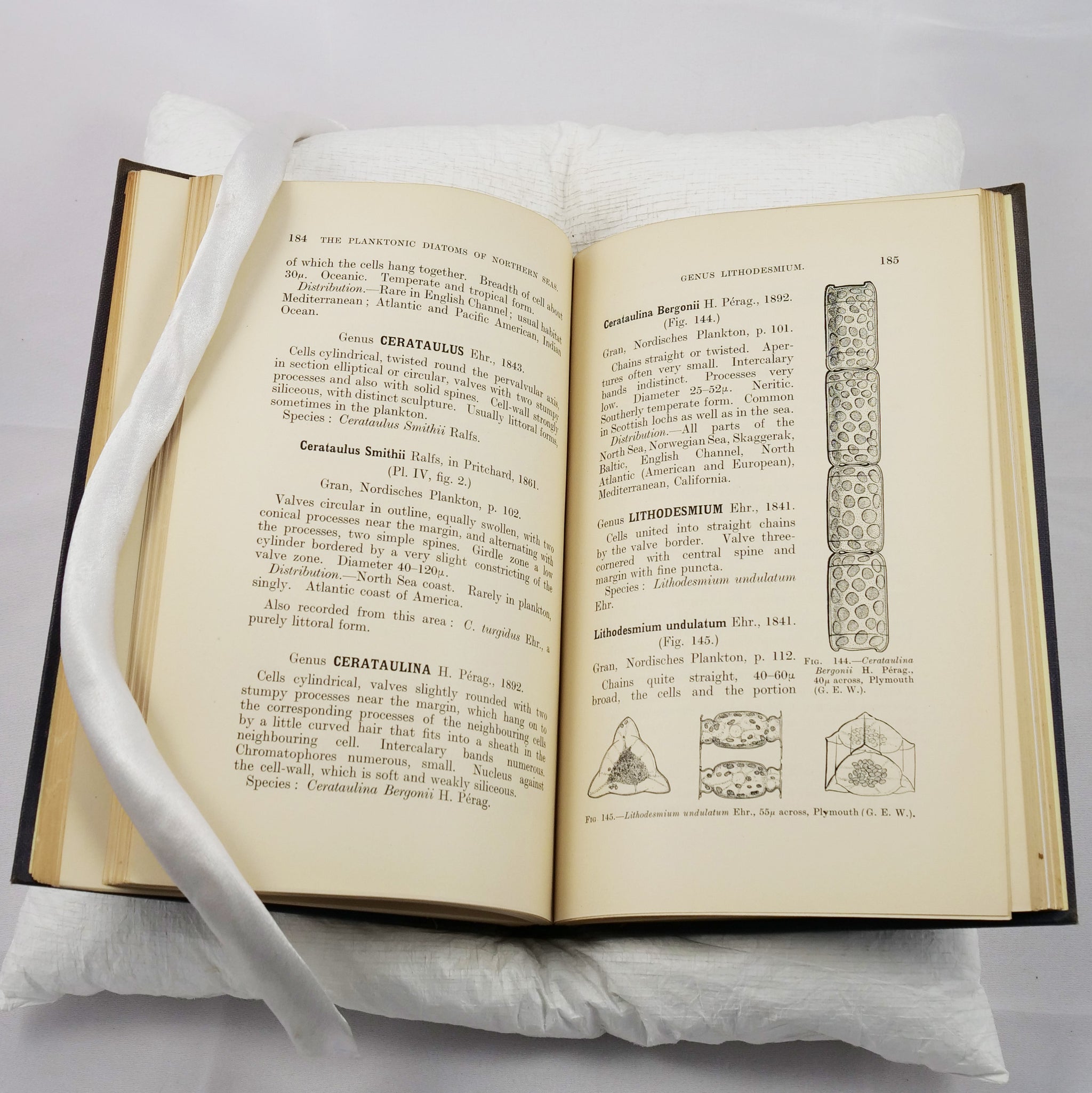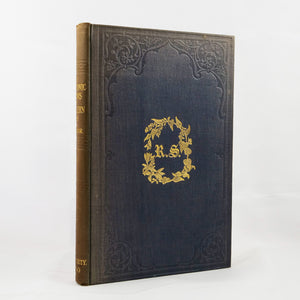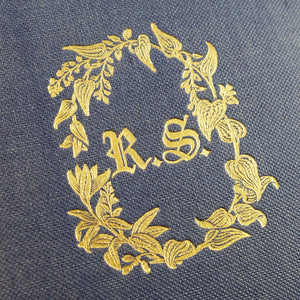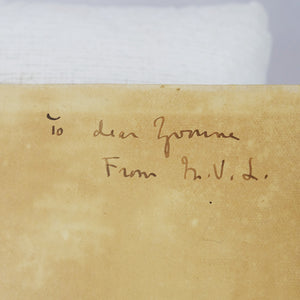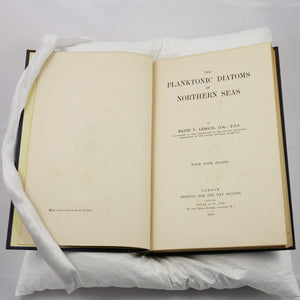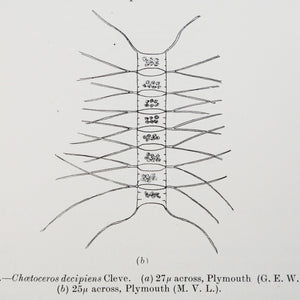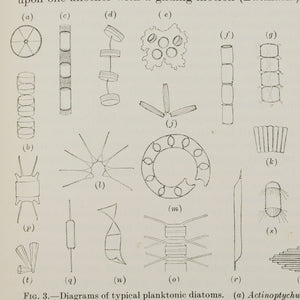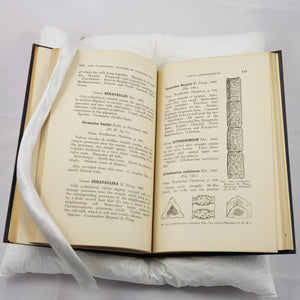Lebour, Marie V. | The Planktonic Diatoms of the Northern Seas
£250.00
-
First edition, first impression. Presentation copy inscribed by the author to her sister on the front free endpaper, “To dear Yvonne, From M. V. L.” (see Lebour’s obituary in the Journal of the Marine Biological Association of the United Kingdom, volume 52, p. 778).
Diatoms, a type of phytoplankton, are one of the earth’s keystone species. They are microscopic algae with silica shells that live in both freshwater and marine environments, and produce an amount of oxygen comparable to that of the all terrestrial rainforests combined. They are a primary food source for many other organisms, and accumulations of their shells in sediments record changes in the oceans and climate. Much was learned about phytoplankton during the early twentieth century, and marine biologist Marie Lebour (1876-1971) became one of the leading experts through her work at the Plymouth Marine Biological Laboratory. She “published two classical papers on this topic in 1917. Her subsequent work on taxonomy of plankton species resulted in her first book, Dinoflagellates of the Northern Seas, and in a subsequent volume in 1930 [the present work]. She identified no fewer than twenty-eight new species” (Ogilvie, Biographical Dictionary of Women in Science). Lebour also studied molluscs and their parasites, euphausiid larvae, and the eggs and larvae of fish. She was also a talented draftsperson, and “her detailed and artistic sketches enhanced her publications” (Ogilvie).
-
...With Four Plates. London: printed for the Ray Society, sold by Dulau & Co., Ltd., 1930.
Octavo. Original blue cloth elaborately blocked in blind, titles to spine and floral roundel to upper board gilt, yellow coated endpapers, top edge gilt. Ray Society half title with portrait vignette, 4 plates, engravings throughout the text. 16 page Ray Society membership and recent publications lists dated January 1930 at rear. Cloth just a little rubbed at the extremities, spine and edges of the boards tanned, free endpapers partially tanned. An excellent copy.

